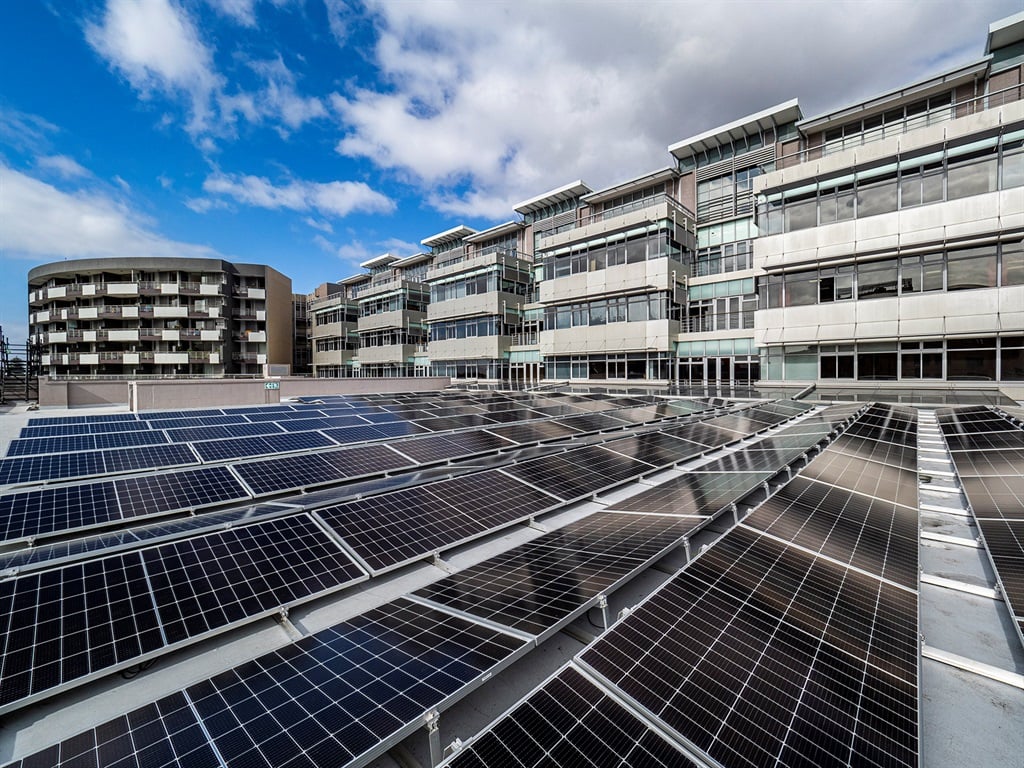
- South Africa's load shedding crisis hurts citizens and the economy.
- But it's also made a much stronger business case for renewable energy, like solar.
- This, in turn, has shifted South African corporates closer to sustainability strategies, with both business continuity and the environment in mind.
Eskom's load shedding has pushed South African companies towards renewable energy as a business continuity measure. That, in turn, has pushed firms further along the road to sustainability.
South Africa's energy crisis, typified by protracted bouts of powerlessness, continues to frustrate citizens, shut down businesses, dissuade investment, and constrict the country's already shaky economy. Now in its fifteenth year, load shedding in 2022 has broken new records for frequency and length.
But Eskom's inability to meet the country's power demands – due to a history of poor maintenance on ageing coal-fired power plants and operational issues involving corruption on a huge scale – has brought the discussion around private renewable energy sources to the fore.
President Cyril Ramaphosa, in July, announced a raft of measures to address South Africa's debilitating energy crisis. This included scrapping licensing thresholds and buying more electricity from existing independent power producers. Ramaphosa also confirmed plans to "incentivise greater uptake of rooftop solar."
Eskom's energy woes have worsened amid heightened global sensitivity around climate change and carbon emissions. The Paris Agreement is an international treaty adopted by 196 parties – including South Africa – in 2015, that aims to limit global warming and cap greenhouse gas emissions. That's led more companies to set carbon neutrality targets, to help the environment and avoid climate change taxes.
And load shedding, as much as it is a challenge to South Africa, has afforded local companies an opportunity – and an additional incentive, in the form of basic business continuity – to turn to renewable sources of energy.
"The big driver [for sustainable business practices] is probably business continuity because of poor service delivery, but the resultant by-product to that is more efficient, more sustainable organisations," Kevin James, the founder and CEO of GCX, a strategic environmental sustainability and project development company that works with corporates to track their carbon reduction targets, told Business Insider SA.
"Definitely, on the energy side, with load shedding, the big driver is towards providing your own renewable energy, becoming more self-sufficient [and] adding batteries to it. This is not a sustainability thing, this is just good business today."
"Five years ago, it could've been argued that the business case for solar just wasn't there yet and going and approaching your boss and saying we need to do an installation of solar could've been a career-limiting move, because the pay-back periods were too long and with competing priorities for budget… but, today, the business case is a no-brainer for solar."
Energy isn't the only crisis faced by South Africa. Water scarcity, particularly in the Eastern Cape, is another challenge and, like load shedding, has provided an opportunity for businesses to be more water-wise, which, in turn, adds to the organisation's sustainability efforts.
"The same extends to water as well as waste [and] I think a lot of people don't realise that in South Africa, most of our landfills are filling up. So, all of these three crises represent business continuity as well as sustainability issues," said James.
But solar power alone, explained James, won't fix South Africa's energy crisis. It's also just one piece of the puzzle corporates have in their mission to lower carbon emissions. The biggest issue, for South Africa as a whole, remains an unbalanced energy mix, with coal-fired plants still dominating capacity.
"The big elephant in the room in South Africa is how do we replace coal as baseload power capacity and capabilities? Yes, with the right energy mix, you could do this," said James.
"In order to decarbonise and actually get to those net-zero points in a very carbon-intensive economy is not easy, and the environment isn't a very enabling one in South Africa… because of policy uncertainty, and having Eskom as the only utility provider doesn't give consumers many options."